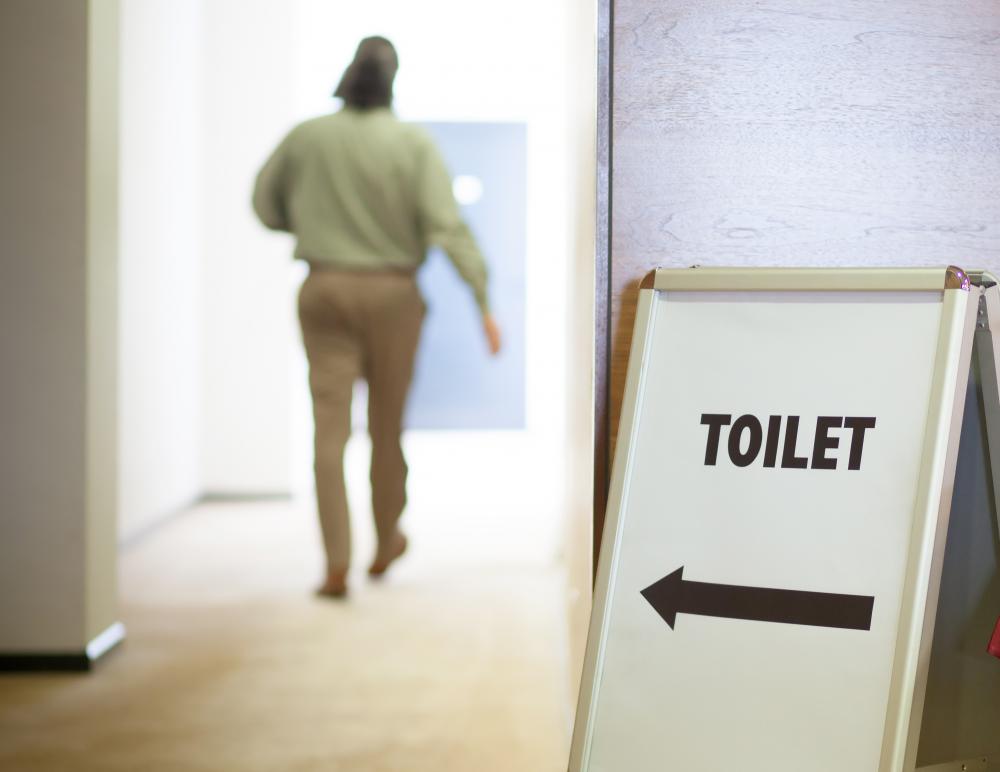At TheHealthBoard, we're committed to delivering accurate, trustworthy information. Our expert-authored content is rigorously fact-checked and sourced from credible authorities. Discover how we uphold the highest standards in providing you with reliable knowledge.
How do I Increase my Bladder Capacity?
Problems with bladder capacity can come about due to several situations. A serious illness may negatively impact the normal function of the bladder, rendering the organ unable to hold the same amount of urine as in times past. Recent surgical procedures may temporarily lower the capacity of the bladder. There is even some evidence that emotional issues can impact the natural ability of the body to control bladder functions in what is considered a normal manner. Fortunately, there are ways to address each of these issues and restore a healthy bladder capacity.
One sign of a problem with bladder capacity is the need for frequent urination. For some reason, the bladder begins to sense the need to urinate long before it is full. When a doctor cannot identify any specific medical condition that is causing the decrease in capacity and control, the use of conditioning exercises can sometimes be helpful.

Adults suffering from compromised capacity may obtain relief by using some of the bladder conditioning exercises that are used to treat children with bedwetting problems. One exercise is known as the stop and go method. This process encourages the patient to consciously stop then restart the flow of urine while eliminating fluids from the bladder. The idea is to help the patient recover a sense of being in control of when and how frequently urination is necessary. Over time, this approach can help to allow the bladder to fill to capacity before urination must be performed.

A similar approach in treating bladder problems involves the intentional drinking of a large amount of fluid, then consciously delaying urination for as long as possible. The idea is to incrementally increase the amount of time the patient can hold off the urge to urinate until he or she feels in control of bladder activity once again.
It should be noted that any exercises designed for use with bladders should only be undertaken under the advice and care of a trained medical professional. Further, the exercises should only be employed when the doctor is sure that there is no organic reason for the bladder capacity problem.

When capacity issues are a side effect of recent surgery, the problem will normally disappear as the convalescent period progresses. The attending physician can determine if the situation merits changes in the patient’s lifestyle, such as limiting consumption of beverages, either in quantity or after a certain time of day. In some cases, medication may help to decrease the severity of the urge to urinate while the patient continues to heal from the surgery.

There is also a possibility that a decrease in bladder capacity comes about due to some type of emotional trauma. Often, traumas of this sort leave the patient feeling incapable of controlling anything, including bodily functions. When this is the case, therapy to modify behavior and facilitate recovery from the trauma will often result in the gradual restoration of the patient’s ability to refrain from urination until the bladder is full to capacity.

When a loss in capacity comes about due to advancing age or a health condition that is not reversible, it is important to utilize methods that help the patient to retain his or her dignity in spite of the problem. Wearing a catheter or some type of adult diaper under clothing are two examples of solutions that may be appropriate. However, using these types of devices should never be undertaken until a physician has determined a restoration of bladder capacity and control is not possible.
AS FEATURED ON:
AS FEATURED ON:















Discussion Comments
pharmchick78- maybe it's not for all patients. But holding urine to increase bladder capacity actually works. It's called bladder re-training. This treatment is used by many urologists.
I've heard that some people will actually undergo a voluntary surgical bladder distention to increase their bladder capacity.
However, since you still have to do the training exercises afterward, and may end up with trouble voiding, I think I'd rather just stick with my Kegels and medication!
Many times patients coming off of a catheter need some help to build their bladder capacity back up.
Doctors will oftentimes tell patients to keep a log of when they go to the bathroom, and then try to increase the wait time between visits by a few minutes at a time.
However, this is a very gradual procedure, and many times patients can only work up to a few hours in between bathroom visits after quite some time.
As the article says, it is important to only undertake exercises to increase bladder capacity under the surveillance of a physician.
Doing things like simply trying to hold the urine in is not a good way to go about increasing bladder capacity, and can actually cause more problems in some people.
Post your comments